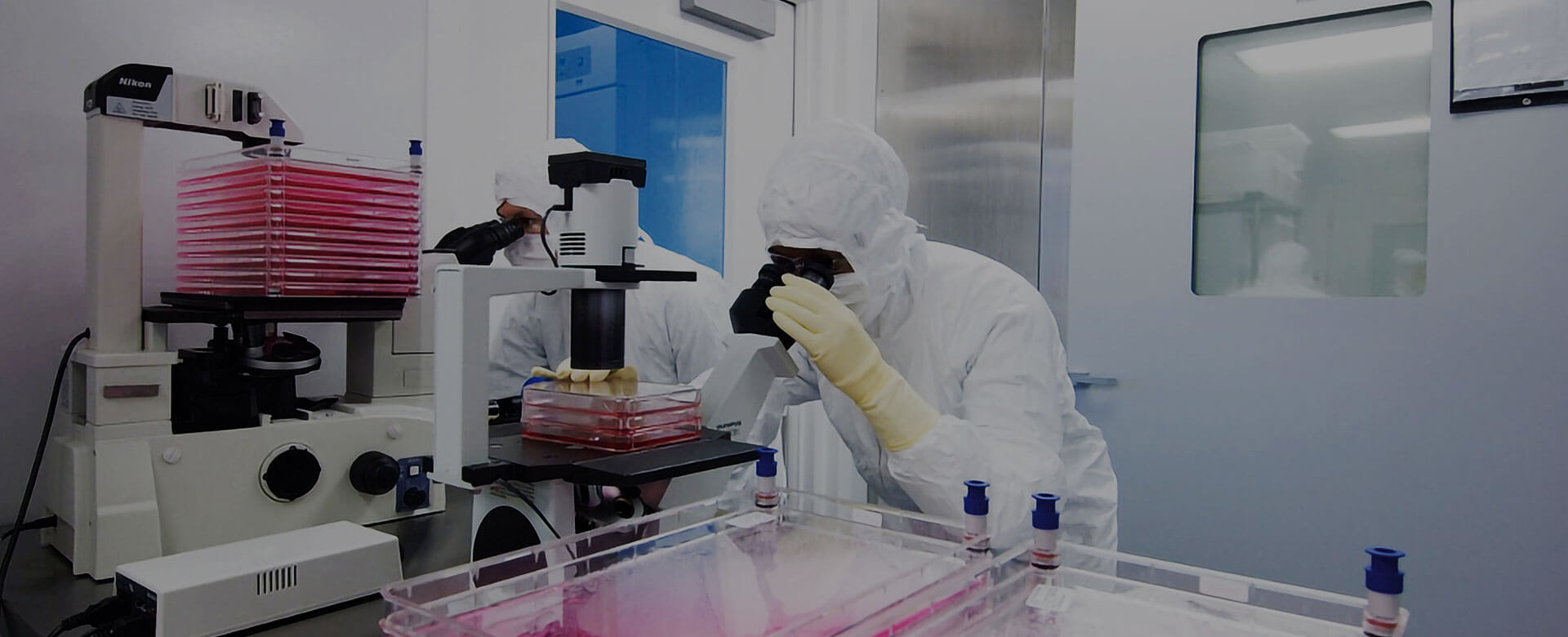A clinical study conducted on COVID-19 critically ill patients confirms expanded stem cell infusion as a safe and efficient tool to reduce inflammation, to counteract thrombosis and to promote immune function. The study was published by Carmen Lúcia Kuniyoshi Rebelatto and colleagues in the peer-reviewed scientific journal Stem Cell Research & Therapy.
Mesenchymal stromal cells: the properties
Rebelatto and colleagues tested the safety and effectiveness of the infusion of Mesenchymal Stromal Cells (MSCs). MSCs are multipotent cells able to repair and regenerate the organism’s structures, and to modulate immune responses. What is more, MSCs can produce antimicrobial effects and counteract programmed cell death. They can be found in almost all human tissues; they can be isolated from, among others, bone marrow, umbilical cord, Wharton’s jelly and adipose tissue.
Once isolated, MSCs can be cultured in the laboratory to obtain a population of cells to be used in clinical treatments. For example, they can be utilized to dampen the inflammatory response. Among already treated health conditions are diabetes, arthritis, myocardial infarction, stroke, Crohn’s disease, multiple sclerosis, and acute lung injury. In general, as stated by Rebelatto and colleagues, MSCs «are a promising tool for treating disorders involving immune dysregulation and extensive tissue damage, as in the case with COVID-19».
The new study
In this new study, researchers recruited 17 critically ill COVID-19 patients who required intensive care surveillance and invasive mechanical ventilation. 6 patients received a placebo, and 11 patients received 3 doses of 5×105 MSCs from umbilical cord each kg of body weight. To obtain such a number of MSCs, Rebelatto and colleagues cultured in the lab cryopreserved umbilical cord MSCs.
MSC infusion was associated with reduced levels of interleukin-6 (IL-6) and C-reactive protein (CRP), two well-known markers of inflammation. The levels of D-dimer – a biomarker of coagulation commonly used for the diagnosis of deep venous thrombosis – were reduced too. Also, expanded cells-based treatment was associated with the rescue of the lymphopenia (that is, reduced white blood cells) observed in the patients, suggesting MSCs’ ability to improve immune system function. Finally, at the fourth month post-infusion, researchers observed a decreased lung damage, and improvement was maintained until the end of the study.
Expanded stem cells as adjunctive therapy
According to the authors, umbilical cord MSC infusion «is safe and can play an important role as an adjunctive therapy, both in the early stages, preventing severe complications and in the chronic phase with postacute sequelae reduction in critically ill COVID-19 patients».
As explained by Giuseppe Marchesani, biologist and director at Bioscience Clinic – Middle East in Dubai Health City, «these results confirm how useful expanded stem cells can be in the clinical setting. Cryopreserving them is an investment in our health; in fact, more and more studies highlight their possible applications in the treatment of several conditions. In particular, their benefits for COVID-19 suggest their potential against inflammation, thrombotic events, and immune deregulation».
How to cryopreserve mesenchymal stem cells
The umbilical cord is not the only source of cells to be cryopreserved. For instance, it is possible to cryopreserve mesenchymal stem cells from adipose tissue obtained during liposuction procedures aimed at shaping body contour, hitting a double target: figure remodeling and cell banking.
For more information about stem cell cryopreservation, please visit Bioscience Institute’s webpage. Feel free to contact us at info@bioinst.com or to call us at +971 (0)4 375 722: our biologist will answer your questions without commitment on your part.
References
- Rebelatto, C.L.K., Senegaglia, A.C., Franck, C.L. et al. Safety and long-term improvement of mesenchymal stromal cell infusion in critically COVID-19 patients: a randomized clinical trial. Stem Cell Res Ther 13, 122 (2022). doi: 10.1186/s13287-022-02796-1
- Wu X et al. Mesenchymal stromal cell therapies: immunomodulatory properties and clinical progress. Stem Cell Res Ther 11, 345 (2020). doi: 10.1186/s13287-020-01855-9


